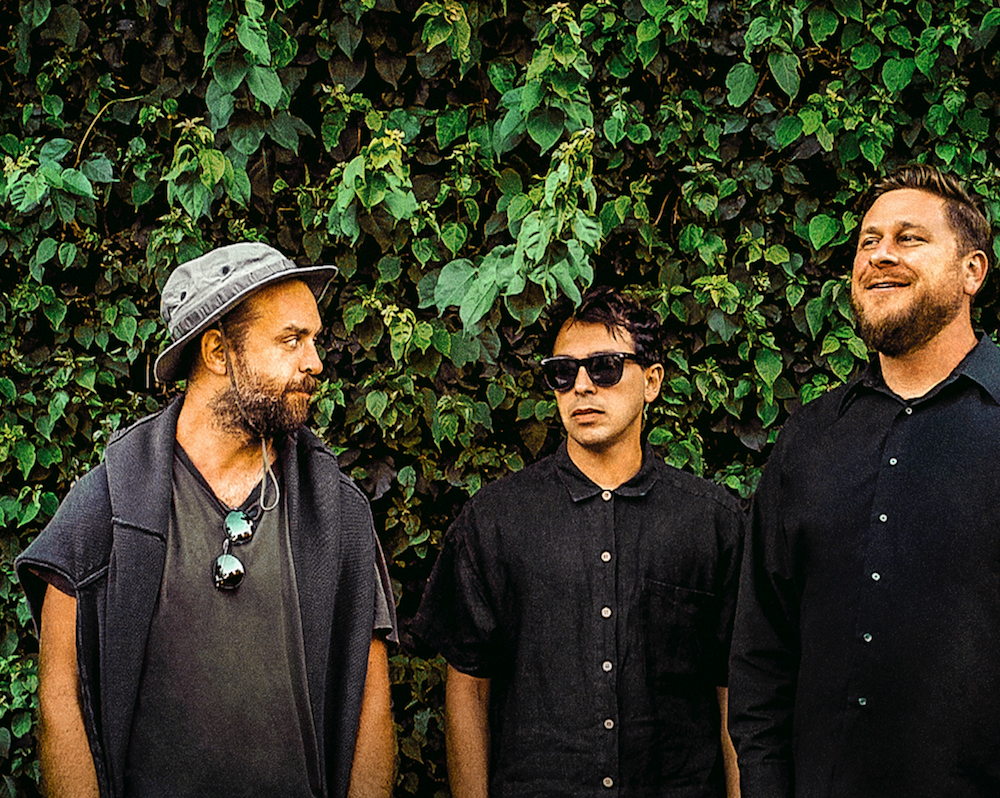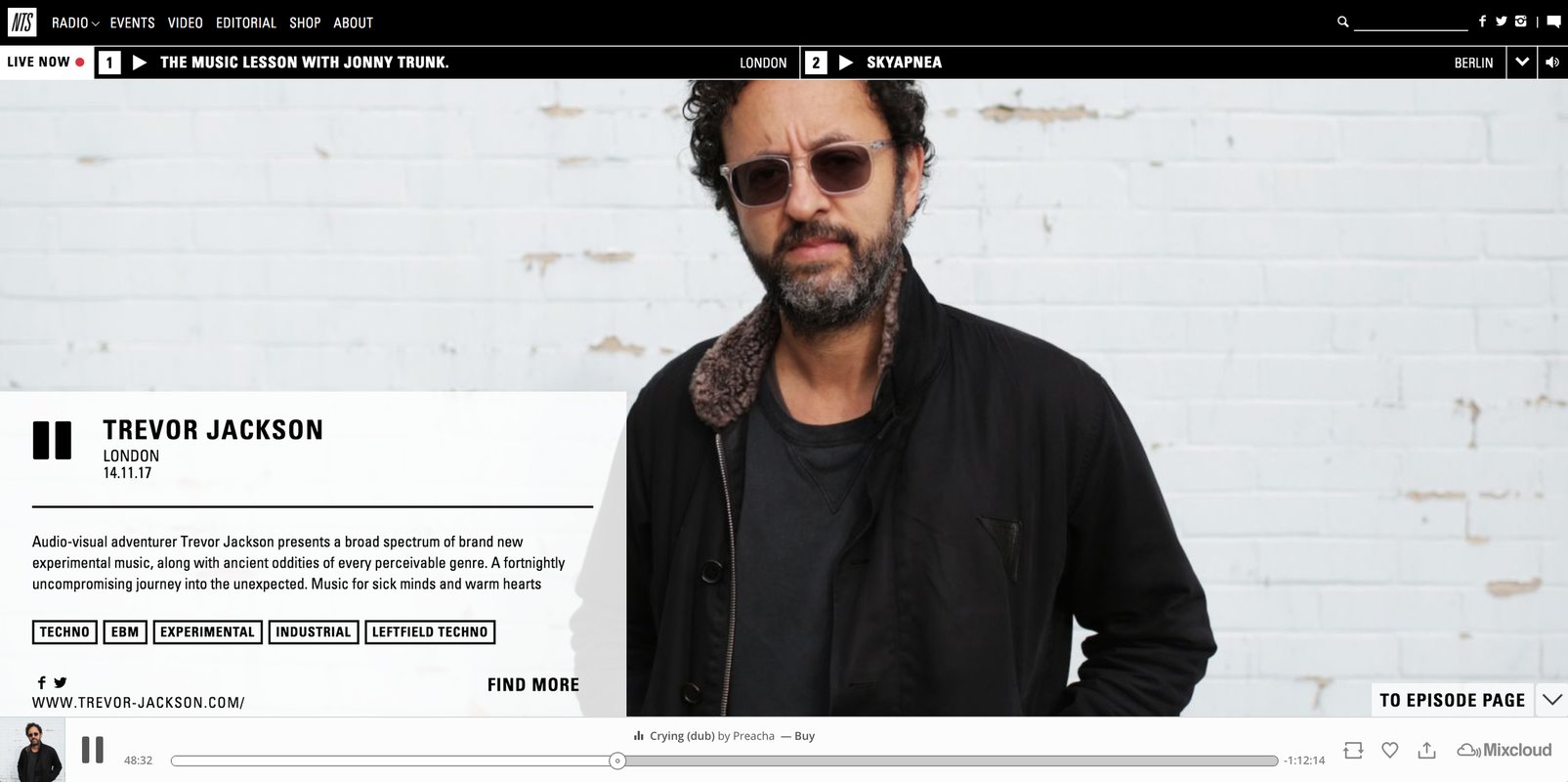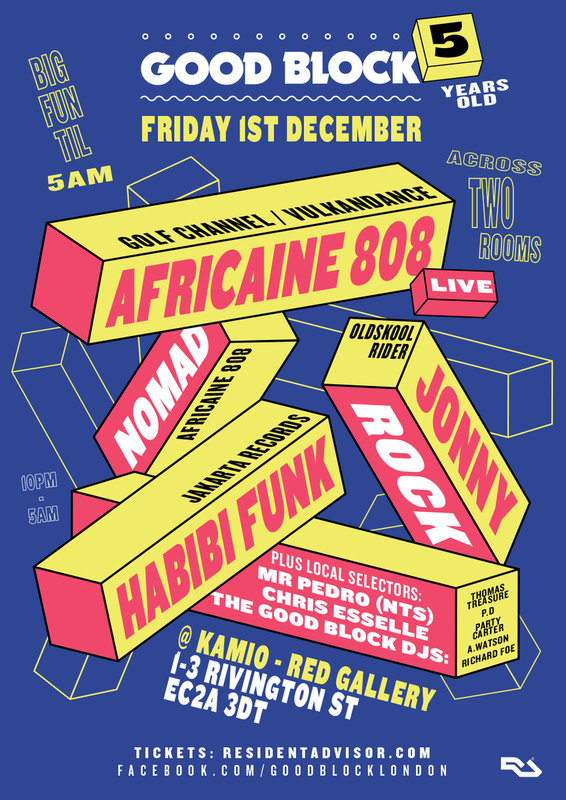Postcards From L.a. #3 - On Some Faraway Beach With Pharaohs
Joe Rihn reports from L.A with an interview with International Feel's recent album artist Pharaohs. Nice folk.

The music of Pharaohs is transportive. It can take you to the most beautiful and exotic locations, but the scenery is often slightly tripped out, like you've arrived in a dream. Pharaohs have created surrealist safaris before, but none more vivid than “In Oeland,” the group's debut for International Feel. While Pharaohs will take you places, the band's creative spirit is rooted firmly in Los Angeles. In a sense, the story of Pharaohs—and how they arrived at "In Oeland"—illuminates a recent part of L.A.’s musical history.
Alejandro Cohen, Sam Cooper and Casey Butler, Pharaohs' three current members, made their way to the band—and Los Angeles in various ways. Alejandro grew up in Argentina before moving to L.A. in the ’90s where he established the band Languis, and later joined the staff of pioneering online radio station dublab.com. Sam was born in California but moved around with his military family before settling in Denver, Colorado. But the ocean drew him back to L.A. where he connected with the city’s musical community through a job at Hollywood’s Amoeba Music. Casey, who handles multiple instrumental roles including woodwinds, came up in San Diego’s legendary ’90s hardcore scene, which pushed the limits of intensity in punk.

When Pharaohs started in 2007 with loose jams between Alejandro and Sam, L.A.’s musical climate was considerably different. “I remember when we first started working together we started doing a lot of ambient and stuff like that,” says Alejandro. Today in Los Angeles there is a thriving culture around dance music, but a decade ago that wasn't the case. By the time Pharaohs began releasing records they were one of the first groups hinting at a new era in L.A.'s musical world.
"I remember distinctively that I started revisiting dance music. Because of our age I come from the days of when I was a teenager, Madchester and all that. And through that I’m talking “Screamadelica” and getting into some house back in ’90, ’91. Then you move on to a million things. And I remember around 2004, 2005 I started buying things like that again," says Alejandro. "Everything was so cheap. You assume it’s being ignored or no one cared for it." Little by little, sparks of interest in underground club sounds began to appear. By 2008 or 2009, Alejandro recalls local DJs like SFV Acid and former Pharaohs member Suzanne Kraft beginning to buy cheap disco and house records.
"All of the sudden we started finding likeminded people,” says Alejandro. "Same with Amanda and Britt [of 100% Silk]. I remember them coming to dublab and playing all this ’90s house stuff. And I’m just there at the office like, 'Wow you’re playing all this shit that I’ve been buying a lot of.' And all of the sudden you come to this realization that there are other people getting into that at the same time that you are." It wasn't long before 100% Silk released Pharaohs’ first record—a bold combination of mutant dance beats and cosmic movements.

While Pharaohs was honing their sound, L.A. was beginning to show signs of a new club culture that is now synonymous with parties like Far Away, Moony Habits and Dig Deeper. But before the scene sprouted dozens of promoters there was Thomas Klepper throwing Music for Dancers.
“I remember one time that we went to Music for Dancers for the first time," muses Alejandro, "And just being blown away because something that was in the back of your mind—someone already had developed that whole community and had it going. And you’re like “Oh, I wasn’t the only one. And it was just down to a T exactly how you wanted to hear it.” At the same time DJ Harvey and his soon-to-be legendary Sarcastic Disco parties were finding a new audience for cosmic and left-field sounds.
In certain ways, Pharaohs' earlier output exemplifies a particular time in Los Angeles, when a scene was developing, but had yet to be defined. Musicians from a variety of backgrounds began finding inspiration in dance music and club culture. At the same time, there was no established playbook for running parties, or what dance records should sound like. "I think by the time we connected with that world it was really starting to shape up. But then you look at the scene now and you realize it was still in its infancy," says Alejandro.
While Pharaohs was drawing energy from L.A.'s burgeoning dance scene, the band also felt a connection with the wider history of L.A. music and with the city in general. Although the band’s three current members are transplants, their creative connections to the region run deep. For Alejandro the artifacts of L.A.’s earlier subcultures continue to influence. “The fact that you shop in L.A. and find certain kinds of records defines your thing, defines your sound. Same with the equipment. A lot the equipment that you find for cheap because it’s leftover from past eras will go on influencing you as well. I think that’s what pretty much defines L.A. all the time.” Listen to a track like “What?” and you can hear that freewheeling mashup of sounds converge.

As Pharaohs progressed with an LP for 100% Silk and a 12” single for ESP Institute, so did L.A.’s dance music subculture, becoming more refined and more sure of itself. By the time 2015’s “Rinse Dream” came out, the underground club scene in L.A. had exploded. But despite the influence they derive from dance music, the band has maintained its independence from any one musical subculture. “We just write songs to write songs,” says Sam. “We don’t try to answer to L.A. or what’s going on in the scene.” For the band members, the ability to be around so much musical activity while staking out an independent space amidst it all is part of L.A.’s appeal. On their newest record it shows. Instead of four to the floor beats, the rhythms become more worldly, ranging from the frenetic “Muddy Middle of Nowhere” to the cool, dubwise “Energy.” “When you hear a record like 'In Oeland' or even 'Replicant Moods,' I think it’s just the result of a big blender. We just put it in there. We put all our ideas, influences and what you get from the community you live in, and that’s what comes out,” says Alejandro.
Pharaohs never really made straightforward club music, but "In Oeland" sees them moving further from the dance floor, toward a style that's all their own. “We had been recording a lot of stuff that was more exploratory,” says Casey of record’s origins. And the results are incredibly unique. Instead of the 707s and 808s that carried their earlier work, “In Oeland” has an organic feel, anchored by hand percussion that sounds like it could come from a field recording. The vocals that appear in mysterious languages create a similar sense of place. At the same, time fretless bass and saxophone that would sound at home on an ’80s pop record mix with sophisticated synth work. “There are a lot of sounds on the record that sound organic but are actually modular,” says Sam, who has been building a Serge Modular system over the past few years.

From their earliest experiments, Pharaohs utilized improvisation to strike out on musical trips and “In Oeland” is no different. As Sam puts it, “A lot of this record, especially the opening track, ‘Muddy Middle of Nowhere,’ is just from straight up jams.” But what happens after the jams are recorded plays a major role in shaping the sound of Pharaohs. The band works in a permanent studio space at Alejandro’s house, where the writing, recording and engineering of the music takes place. “This record was done over the course of a few years,” says Casey. “It’s not like we booked a studio and in a few weeks made an album.” With no time constraints in their studio (dubbed Café Ale), the band is free to jam into far off places and sculpt the results into completed tracks at their own pace. Since the band formed, they’ve met almost every Monday and Wednesday at Café Ale to work through new ideas, mix recordings or just hang out.
At the core of Pharaohs’ working methods is an elevated understanding of collaboration, where every interaction between the members in the studio, whether active or passive, is a potentially creative act. “Many times with Pharaohs, someone’s silence is a form of collaboration. Someone is doing something and the other just nodding like that’s ok—that alone is a big thing,” says Alejandro. But ultimately, what defines the band is a shared hunger for musical exploration. It’s evident in the band’s continued urge to push their sound further out, and in the tropical locations that their tracks so vividly evoke. As Sam describes the setting they call Oeland, “It’s a fictitious place we built together.”


